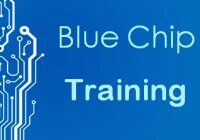 Overview
Overview
Quantum computers are machines that are built on the principles of quantum mechanics. Unlike classical computers which rely on bits that can only exist in one of two states (0 or 1), quantum computers use quantum bits which can exist in multiple states at once. Because of this, quantum computers are expected to process algorithms and solve problems much faster than classical computers. Q# is a programming language created by Microsoft specifically for quantum computing.
In this instructor-led, live training, participants will learn the fundamentals of quantum computing and Q# as they step through the development of simple quantum programs.
By the end of this training, participants will be able to:
- Install and configure Microsoft’s Quantum Development Kit.
- Understand the concepts behind quantum computing.
- Build, test, execute, and troubleshoot a quantum program using Q#, Visual Studio and a local quantum computing simulator.
Audience
- Developers
Format of the course
- Part lecture, part discussion, exercises and heavy hands-on practice
Note
- To request a customized training for this course, please contact us to arrange.
Requirements
- Experience with Visual Studio
Course Outline
Introduction to Quantum Computing
- Quantum Computing vs. Classical Computing
Overview of Microsoft’s Quantum Development Kit
- Q# Language and Compiler
- Q# Standard Library
- Local Quantum Machine Simulator
- Quantum Trace Simulator
- Visual Studio Extension
Setting Up the Quantum Development Environment
- Installing and Configuring Microsoft’s Quantum Development Kit
Using the Q# Programming Language
- The Type Model
- Expressions
- Statements
- File Structures
- Operations and Functions
- Working with Qubits
Creating Your First Quantum Program with Q#
- Setting Up a Quantum Solution and Project in Visual Studio
- Defining Q# Operations
- Calling Q# Operations using C#
Executing Your Quantum Program
- Using the Local Quantum Computing Simulator
Testing and Debugging Your Quantum Program
Troubleshooting
Summary and Conclusion
